Washing, drying, and styling your hair every single day is incredibly time-consuming… But it’s also not good for your hair! It’s no wonder dry shampoo has become so trendy in recent decades.
Dry shampoo can keep us looking and feeling fresh, while saving lots of time and energy that can be better spent on other things.
The only problem is, most conventional aerosol dry shampoo brands contain toxic ingredients that are known to cause or contribute to allergic reactions, fertility problems, cancer, and more.
So in this guide, I’m giving you my favorite non-toxic, natural, and safe dry shampoo brands, and walking you through the problematic ingredients to look out for.
Table of Contents: Safe & Non Toxic Dry Shampoo
- Our Favorite Safe & Natural Dry Shampoos at a Glance:
- First of All: How Does Dry Shampoo Work?
- Is Dry Shampoo Bad For You?
- What Ingredients Should I Avoid In Dry Shampoo?
- Sorry, But an Aerosol Dry Shampoo is Not a Safe Dry Shampoo (You Can Thank Benzene)
- P&G Dry Shampoo Recall (December 2021)
- Unilever Dry Shampoo Recall (October 2022)
- Batiste & Other Brands Test Positive for Benzene (October 2022)
- What to Look for in Safe, Natural Dry Shampoo without Benzene
- The 8 Safest Natural & Non-Toxic Dry Shampoo Brands (Benzene-Free Of Course!)
- Billie (Best Overall)
- Rahua (Best Volumizing)
- Prose (Best Customized)
- Chagrin Valley (Most Affordable)
- Primally Pure (Best Organic Dry Shampoo)
- Act + Acre (Best Baking Soda-Free)
- Fat and the Moon (Best Zero/Low-Waste)
- 7 Bonus Mostly Safe & Natural Dry Shampoo Brands
- 16 Dry Shampoo Brands to Avoid
- What Is The Safest (& Natural) Alternative to Dry Shampoo?
- Final Thoughts on Safe, Natural Dry Shampoo
- Other F.A.Q.s About Dry Shampoo
This post contains affiliate links, which means we may earn a small commission if you choose to make a purchase. We only make honest recommendations. Featured Image Credit: Rahua
Our Favorite Safe & Natural Dry Shampoos at a Glance:
- Best Overall: Billie
- Best Volumizing: Rahua Voluminous
- Best Customized: Prose
- Most Affordable: Chagrin Valley
- Best Organic: Primally Pure
- Best Baking Soda Free: Act + Acre
- Best Zero Waste: Fat & The Moon
- Least-Bad Aerosol Dry Shampoo: Vegamour GRO (**See more info below!)
+ even more natural dry shampoos to try out are listed below.
First of All: How Does Dry Shampoo Work?
Despite the fact that we call it “shampoo,” dry shampoo doesn’t actually clean your hair. Instead, it simply reduces the oily appearance of your hair by absorbing that oil into the powder.
Dry shampoo works in two primary ways:
- It absorbs oil (sebum), mostly at your hair roots
- It masks odor to keep your hair smelling fresh
Dry shampoo comes in two primary forms:
- loose powder
- aerosol spray
Most dry shampoo spray is actually just powder that has been combined with aerosols to make it into more of a hairspray texture for application.
Is Dry Shampoo Bad For You?
Just like with almost any and all cosmetics, personal care, and cleaning products, whether or not dry shampoo is potentially harmful completely depends on the specific brand and/or product you’re using.
Unfortunately, many brands use ingredients that are either suspected or known to cause long-term negative health effects—everything from itchy skin to cancer.
The good news, however, is that there are plenty of safe (and effective!) non-toxic dry shampoo brands on the market today, which I’ve researched and rounded up for you below.
What Ingredients Should I Avoid In Dry Shampoo?
Aerosols: Even if the “active” ingredients aren’t harmful, the butane, propane, isobutane, and tetrafluoropropene gasses used to make aerosol dry shampoos work are toxic for respiratory tracts and can exacerbate allergies. Aerosol sprays are often contaminated with benzene (a known carcinogen), which I’ll talk more about in a minute.
Fragrances: I’ve talked about this before (and will continue to do so), but the word ‘fragrance’ should always raise a red flag. There are over 3,500 different ingredients (many toxic, some not) that are legally fair game to use under the ‘fragrance’ umbrella without having to be disclosed. Phthalates, for example, are endocrine-disrupting chemicals (EDCs) that can be “hidden” under the fragrance loophole.
Talc/Baby Powder: Talc does have great absorbency, but it may be contaminated with asbestos, which is toxic.
Over the past decade, the safety of baby powder has come into question. Talc is the main ingredient in baby powder, and very commonly contaminated with asbestos, which is known to cause cancer.
There have been many lawsuits filed against Johnson & Johnson over the past several years, and the company has paid out billions of dollars to families because of this. In fact, J&J’s talc-based baby powder isn’t even sold on shelves anymore in most countries.
That’s why my picks for the best natural dry shampoos are talc-free.
Alcohol: For many, alcohol is just too aggressive to leave on the scalp. Its harshness can strip too many of the oils our scalp still wants in order to be healthy. If alcohol is in the ingredients list and you’re using it a lot, you may have dandruff, blocked pores, and/or dry hair.
Cetrimonium Chloride: This is used to decrease static, but many people are allergic. It is a completely banned ingredient in the E.U.
Siloxane, Silicones, & Cyclotetrasiloxane, Octamethylcyclotetrasiloxane: These help wet products dry faster because they don’t break down. They build up over time on our bodies and in the environment when we wash them down the drain. Some of them come with moderate risk for endocrine-disruption.
Sorry, But an Aerosol Dry Shampoo is Not a Safe Dry Shampoo (You Can Thank Benzene)
Over the past few years, we’ve seen aerosol consumer products end up in the news because of recalls over benzene contamination. (I’ve provided updates of some of those headlines below.)
Benzene is a known carcinogen, specifically linked to leukemia. In the short term, high doses of benzene can affect the nervous system (causing drowsiness, dizziness, headaches, and more).
In addition to cancer, long term effects of benzene exposure can lead to things like anemia as well as suspected reproductive harm.
The crucial thing to know about the aerosol and benzene problem is that the benzene is not added intentionally. It’s a contaminant.
This means you won’t find it on any ingredient labels and there is basically no way of knowing whether or not benzene exists in a product without actually testing it at a lab.
But the point is that there is a very high chance that aerosol products of any kind may be contaminated with benzene, which is why I recommend you go with a non-aerosol dry shampoo option.
P&G Dry Shampoo Recall (December 2021)
In December 2021, P&G recalled 32 of its dry shampoo and conditioner products because they contained “unexpected levels” of benzene in them.
Here are the brands that were affected by this P&G recall:
- Aussie
- Hair Food
- Herbal Essences
- Old Spice
- Pantene
- Waterl<ss
P&G stated that no known negative effects were caused by these dry shampoo brands, and the recall was a voluntary one.
Unilever Dry Shampoo Recall (October 2022)
In October 2022, Unilever also issued a voluntary recall of some of their products for the same reason (elevated benzene). This recall includes products produced before October 2021 for the following brands:
- Dove
- Nexxus
- Suave
- Rockaholic
- Bed Head
- TRESemmé
Batiste & Other Brands Test Positive for Benzene (October 2022)
Shortly after the Unilever recall became public, an independent lab released a report stating that they’d found benzene in 70% of the dry shampoo they tested. These tests actually included brands like Batiste, Not Your Mother’s, Paul Mitchell, OGX, and many more.
Even though these brands were not technically recalled (yet?), it just adds to the growing body of research showing that aerosol dry shampoos are often contaminated with benzene and are therefore unsafe.
What to Look for in Safe, Natural Dry Shampoo without Benzene
Okay, moving on to what you should look for in healthier dry shampoos!
Non-Aerosol Sprays and Powders
I know, I know… Aerosol can be so convenient when it comes to evenly dispersing the dry shampoo into your hair. But if you’re really serious about using a non-toxic dry shampoo, using aerosol just isn’t worth it.
The recommended brands below are powders that can be either:
- shaken onto your head through a pinhole in the bottle
- shaken on like you’d sprinkle salt on your dinner
- misted with a non-aerosol spray bottle
- or applied with a powder brush.
If you’re used to aerosol, it might take a little bit of adjustment to figure out how to apply it optimally, but I promise it’s really not difficult!
The Ingredients To Look For in Safe Dry Shampoo
Look for the following ingredients, organic if possible, in your non-toxic dry shampoo:
- Rice starch, arrowroot powder, cornstarch, cassava kaolin clay, and baking soda: these are all safe, natural ingredients that can effectively absorb oil.
- Cocoa powder: This can also absorb moisture, and can be a key dry shampoo ingredient for those with darker hair!
- Witch hazel: A natural astringent that helps to dry out oils while conditioning the scalp.
- Charcoal: This is a safe “detoxifier” that can help absorb impurities and promote overall scalp health.
- Essential oils: look for brands that use sustainably-sourced essential oils for scent instead of mystery “fragrances.” Those who have specific allergies or sensitivities to even natural scents may want to go the fragrance-free route.
Of course, this is not an exhaustive list; many of the brands below also utilize other natural and nourishing ingredients, too.
The 8 Safest Natural & Non-Toxic Dry Shampoo Brands (Benzene-Free Of Course!)
The good news is that there are plenty of safe, non-toxic dry shampoo brands available that still get the job done! Here are my favorites:
Billie (Best Overall)


Best for: All hair types
Price: $14 for 1.2 oz
Available Colors: Dark & Light
Scented? No, it’s fragrance-free.
Cruelty-Free/Vegan: Yes
Application: Shakes out of one tiny pinhole.
Billie (yes, the popular razor brand) carries a non-toxic, benzene-free dry shampoo and volumizer combo, which they call “Floof.” It gets our “Best Overall” win because it’s got a great combination of oil-absorbing, nourishing, and hair-plumping ingredients that generally work for all hair types.
It uses ingredients like biotin (which helps to add volume to your hair), along with rice starch and baking soda (to absorb oil). It comes in two different shades, a blonde color and a darker brown.
Rahua (Best Volumizing)


Best for: Limp or fine hair
Price: $32 for 1.8 oz
Available Colors: White
Scented? Yes, it has a mild plant-based vanilla scent.
Cruelty-Free/Vegan: Yes
Application: Non-aerosol spray
If you’re used to using aerosol dry shampoo, you should give Rahua a try. Not only does it have the spray feature, but it can compete with aerosols when it comes to its volumizing capabilities.
To make this one of the best safe dry shampoo brands, they use organic, food-grade cassava, which is an edible root that’s been a staple for Amazonian people for thousands of years.
That’s combined with other natural ingredients like cosmetic clay and star anise (evergreen seed!). It not only leaves hair feeling refreshed and volumized, but the star anise also offers antimicrobial properties that help maintain a healthy scalp.
Prose (Best Customized)

Best for: YOUR specific hair!
Price: $30 (save 15% with a subscription)
Available Colors: White/Translucent
Scented? No, it’s fragrance-free.
Cruelty-Free/Vegan: Yes
Application: Non-aerosol pump spray
If you have specific needs or just want to take a more personalized approach to your haircare, you may want to try Prose. Every formulation provides the basic oil-absorbing and volumizing features that you want from a dry shampoo, but then beyond that, you’ll get your own formula based on your scalp and hair needs.
Plus, it’s all GMO-free, alcohol-free, and gluten-free. You can find out more about every one of their ingredients here.
Abbie’s Take: I actually really like Prose haircare as a whole. I have come to prefer their dry shampoo “spray” bottle more than most of the other brands. (I’ve even kept the bottle and refilled it with other types of dry shampoo!) It’s not the same as aerosol, but it does disperse more evenly over my hair than the shake-only kinds.
I also like how, even though the powder is white, but it’s more fine compared to other brands, which makes it more “translucent.” It absorbs into my hair pretty quickly.
Chagrin Valley (Most Affordable)
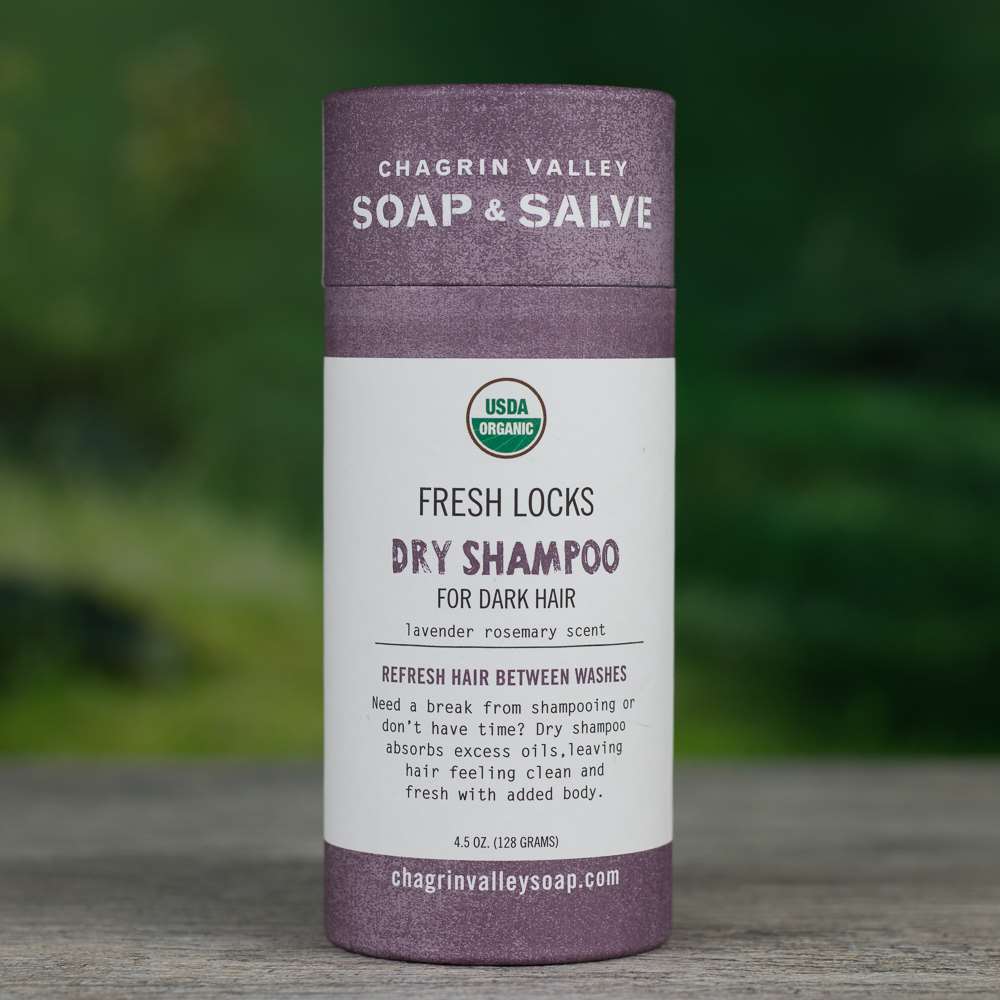
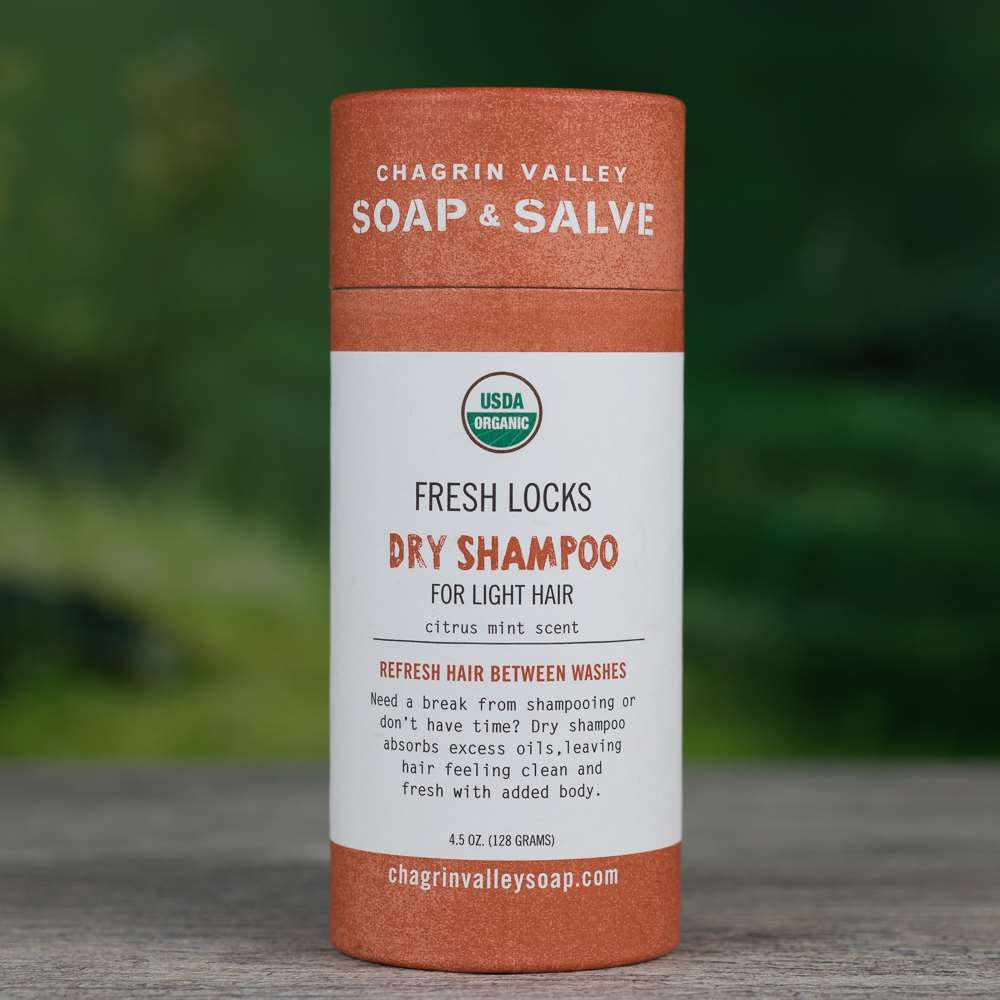
Best for: All hair types
Price: $18.50 for 4.5 oz
Available Colors: Light & Dark
Scented? Yes, they offer 3 different essential oil blends.
Cruelty-Free/Vegan: Yes
Application: Several holes on top so you can use either the brush method or the shaker method.
It’s not only one of the safest dry shampoo brands, but Chagrin Valley is also the most affordable organic dry shampoo on this list.
The brand’s non-toxic products are made in Solon, Ohio. They offer three different scents (Fresh Mint, Lavender Rosemary, and Fresh Citrus Mint) They’re one of the few organic dry shampoos that comes with a third-party certification (USDA Organic). Plus, their packaging is compostable and recyclable.
Primally Pure (Best Organic Dry Shampoo)


Best for: All hair types
Price: $16 for 1 oz or $28 for 2 oz
Available Colors: Light & Dark
Scented? Yes, scented with essential oils.
Cruelty-Free/Vegan: Yes
Application: The lid gives you the option of shaking it out through 5 small holes or one big one. You can then blend with your fingers or a powder brush.
Primally Pure’s organic dry shampoo is made with mostly organic ingredients (although it’s not third-party certified).
This is a great option for pretty much all hair types—it’s simple, yet effective. It uses ingredients like arrowroot powder, kaolin, cacao powder, baking soda, and essential oils. Everything from Primally Pure is natural, sustainably-sourced, and handcrafted in California.
Act + Acre (Best Baking Soda-Free)


Best for: All hair types, but especially those with sensitive, itchy, or irritated scalps
Price: $26 for .6 oz
Available Colors: White
Scented? No, it’s fragrance-free.
Cruelty-Free/Vegan: Yes
Application: Non-aerosol spray
This plant-based dry shampoo is one of the best options for those with sensitive scalps. Not only is it free of baking soda (which can potentially disrupt the skin’s pH and be irritating for some), but it’s also fragrance-free, so you don’t have to worry about any allergens or irritants there either (even from natural oils!).
Plus, the ‘Ioniplex Fulvic Ionic Mineral Complex’ is extra nourishing for itchy, dry, or irritated scalps as well.
Even though it only comes in a white powder, it blends well into all hair colors after a few minutes.
Fat and the Moon (Best Zero/Low-Waste)


Best for: All hair types
Price: $18 for 2 oz
Available Colors: Medium/Dark
Scented? Yes, with essential oils.
Cruelty-Free/Vegan: Yes
Application: Top with several holes can be used with the shaker method or with a powder brush.
This simple dry shampoo only contains a few ingredients: Cocoa powder, arrowroot powder, kaolin clay, and lavender essential oil. Most of those ingredients are organic. It’s formulated by an herbalist, and each container is handcrafted in Grass Valley, CA.
It comes in an aluminum container and almost all of the packaging is recyclable and/or biodegradable, with the exception of the sticker label on the front.
Even though it has cocoa, the color isn’t super dark, so this will work for most people with lighter hair as long as you don’t go overboard. (Plus, the cocoa smells scrumptious!)
7 Bonus Mostly Safe & Natural Dry Shampoo Brands
These brands didn’t quite make my “Best Of” list, but they are still good options as far as ingredient safety is concerned:
- Acure
- Afterworld Organics
- Be Green Bath & Body
- Beauty By Earth
- Briogeo
- Hair Dance
- La Tierra Sagrada
- Lulu Organics
- Qēt Botanicals
- The Earthling Co.
**Because it makes almost every list, I have to mention Vegamour GRO Dry Shampoo.
If you absolutely HAVE to have an aerosol dry shampoo, this one is the least-bad option I’ve been able to find. It does have isobutane in it, which means it could be contaminated with benzene. It’s also not alcohol-free so it may not be suitable for those with dry scalps.
However, they say their products are free of sulfates, parabens, silicones, gluten, and artificial fragrance. They’re scented with 100% essential oils, vegan and cruelty-free. If you absolutely cannot give up your aerosol dry shampoo spray, I’d recommend this one over all of the rest.
16 Dry Shampoo Brands to Avoid
These brands contain more than a couple concerning ingredients, and I recommend staying away from them:
- Aussie
- Batiste (there’s so much to say that Batiste gets its own article)
- Bumble and bumble
- Dove
- Drybar
- Garnier Fructis
- Hair Food
- Herbal Essences
- Living Proof
- Love Beauty & Planet
- Nexxus
- Not Your Mother’s
- Old Spice
- Pantene
- TRESemme
- Waterl<ss
What Is The Safest (& Natural) Alternative to Dry Shampoo?
Wondering what else you might be able to use instead of dry shampoo? Corn starch is the most natural you can go!
Instead of baby powder, if you’re looking for an inexpensive DIY dry shampoo alternative, you can try cornstarch (which may need to be mixed with cinnamon or cocoa powder depending on your hair color), powdered foundation or makeup setting powder (just make sure it’s a non-toxic brand!), or apple cider vinegar (put into a spray bottle).
Final Thoughts on Safe, Natural Dry Shampoo
Whether it’s a staple in your routine or something you use every once in a while, using a natural dry shampoo is an easy switch you can make to surround yourself (and your family) with safer, healthier products. These 8 brands have created a variety of scents, colors, styles, and applicators to fit any of your haircare needs!
If there are any dry shampoo brands that you’re wondering about and aren’t listed here, just let me know in the comments below and I’ll look into it!
Other F.A.Q.s About Dry Shampoo
Why Would I Use A Dry Shampoo?
There are a number of reasons you might use dry shampoo throughout your week:
– If you have a midday workout and don’t have time to completely dry and restyle your hair, you might take a body-only shower and use dry shampoo to tide you over until you can wash your hair.
– If you have thick or textured natural hair that can’t or shouldn’t be washed and styled as frequently, you may use dry shampoo to give your hair freshness and volume between washes.
– If you have really straight hair, oil can become more visible because it just slides straight down from your hair follicles to collect all over your head, so you may want to use dry shampoo to reduce that oily appearance.
– You may use dry shampoo as a volumizer, since it matters at the roots to provide some plump for styling.
– If your hair is producing too much oil from overwashing, you may use dry shampoo as you “oil train” your hair.
Can Dry Shampoo Cause Cancer?
As mentioned above, it is not uncommon for conventional dry shampoo brands to contain carcinogenic ingredients, whether unintentionally (as was the case with P&G’s recalled products), as an unlisted “fragrance” ingredient, or something else.
Some ingredients that are commonly found in dry shampoo like phthalates and talc are known to increase one’s risk of cancer.
That being said… Using dry shampoo a few times is unlikely to cause cancer in and of itself… BUT, when you use conventional dry shampoo combined with all of the other environmental toxins that our bodies are exposed to each and every day, then you may be increasing your cancer risk.
Unfortunately, some environmental toxins can’t be avoided. That’s why we should avoid carcinogenic ingredients where we do have control… that includes hair care!
Does Dry Shampoo Cause Hair Loss?
Yes, it can. As one former dry shampoo fanatic discovered in interviewing several dermatologists and hair experts, as dry shampoo absorbs oil, it can irritate the scalp and lead to inflammation of the hair follicles. This inflammation can cause weakened follicles, which can then lead to shedding and hair loss.
To prevent hair loss from dry shampoo, experts recommend using dry shampoo only a few times per week, max. Trying brands that are alcohol-free, and/or baking soda-free may be helpful as well.
Is Dry Shampoo Safe For Lungs?
Whether you’re using a spray or powder, you’re pretty much guaranteed to breathe in some of the dry shampoo during the application process. I’ve already discussed the toxic ingredients that are commonly used in dry shampoo above, and you really don’t want to be breathing any of that in.
Since breathing in at least a little bit of dry shampoo is unavoidable, you should use a brand with safe ingredients in order to reduce your risk of allergic reactions or other long-term health issues.
Is Powder Dry Shampoo More Effective Than Spray?
This is totally a personal preference. Most of the non-toxic dry shampoo brands come in powder form so they don’t have to worry about those toxic aerosols, so that’s what I recommend trying. Several of the brands above offer non-aerosol spray options to help evenly disperse the spray on your hair.
Does Non-Toxic Dry Shampoo Actually Work?
The question of quality and efficacy is an important one. Yes, you want to use safe products but you also want them to get the job done!
So, is non-toxic dry shampoo as good as conventional dry shampoo? The short answer is: yes! The brands I’ve recommended here have been tested to not only absorb oil but also provide volume and help encourage healthy hair and scalp.
That being said, since everyone’s hair is very different, you might have to do some trial and error to find the brand that works best for you individually. If you’re used to using aerosol sprays, you may want to play around a little bit to get used to the non-aerosol options.
Body
Is Batiste Dry Shampoo Safe? Can the Ingredients Cause Cancer?
A recent recall of 32 P&G dry shampoo products has many asking: what about Batiste?! Does this popular brand contain benzene, too? Is Batiste dry shampoo safe to use?


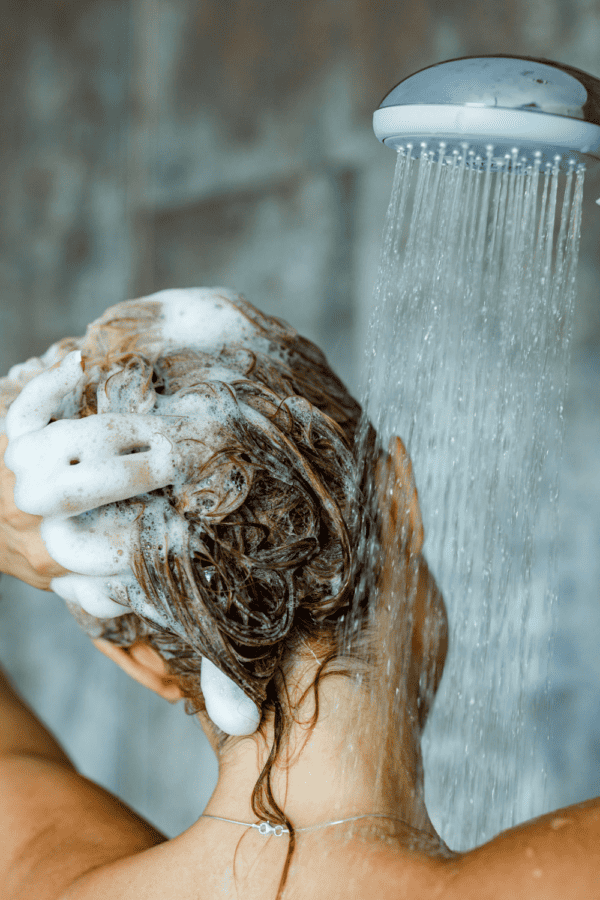
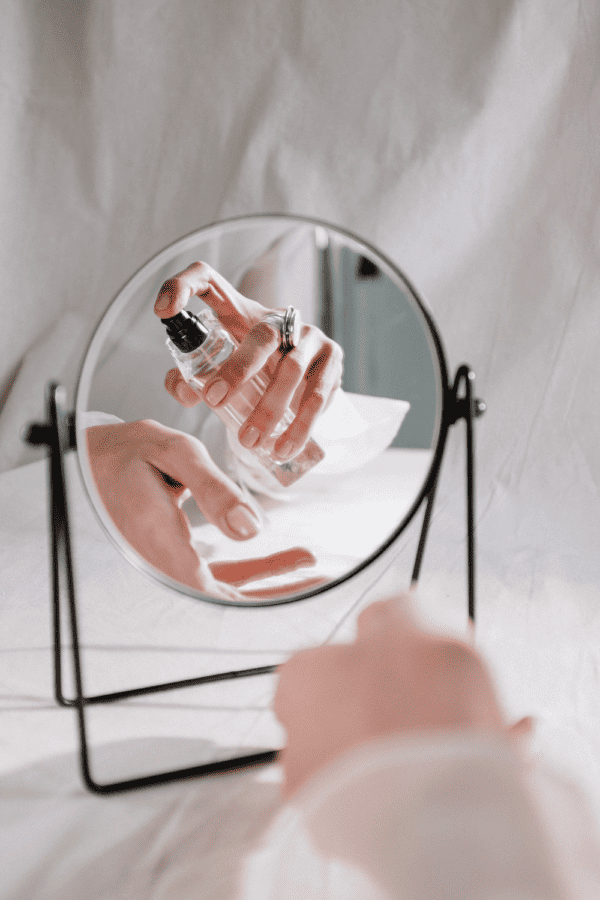
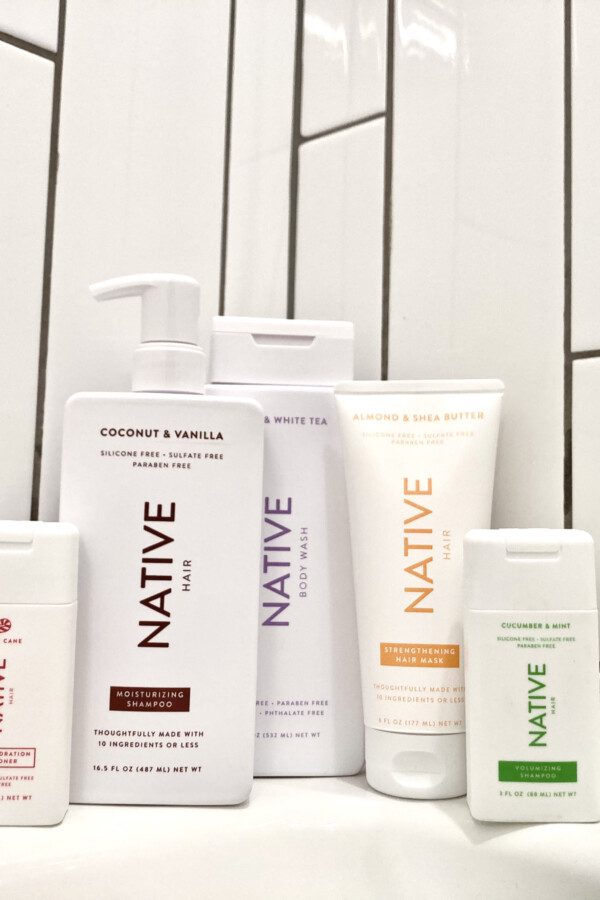
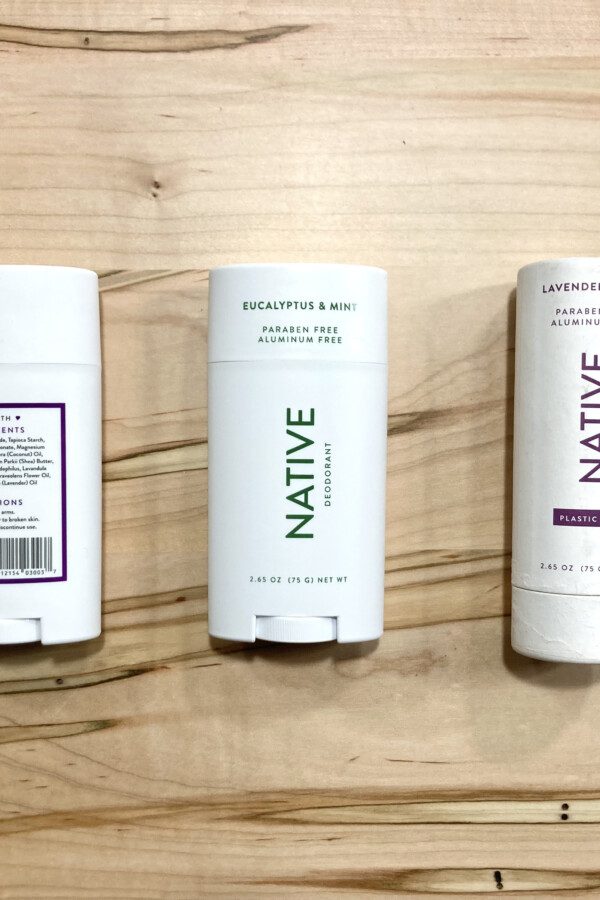
Hi there,
Really useful article, Im just now beginning to use dry shampoo as I’ve got a perm and don’t want to wash my hair more than twice a week, so between those washes I was using Batiste (eek!) until I read about the benzene issue… I then brought Colab original dry shampoo after a friends recommendation, but found it had the exact same culprit ingredients as Batiste!
I’m now frantically searching for an *affordable* dry shampoo.
Would Battle Green Dry Shampoo be ok? https://www.battlegreen.co.uk/product-page/natural-dry-shampoo-powder
Or Green Planet Beauty Dry Shampoo? https://greenplanetbeauty.co.uk/product/100-natural-dry-shampoo
Thanks for your help with this.
I look forward to hearing from you!
Hey Allyce! I checked out the ingredients in both of those brands and they both look like good options! (Provided that you don’t have any sensitivities to the essential oils used, like limonene, etc.)
I just bought Puracy dry shampoo which is a small business and clean ingredients and says it is certified benzene free. Do you think it is possible to be benzene free in aerosol? Also does that mean hair sprays like Kenra have benzene.
Hey Tina,
Thanks so much for bringing this one to my attention! I reached out to Puracy to get some more info about this and they actually sent me a Certificate of Analysis showing the benzene test results. (This is what they mean by “certified benzene free”.) The results they sent me showed a result of <1ppmw (which basically means 'non-detectable' levels). This is great—and I think it's what all companies that make aerosol products should do! Since benzene is a CONTAMINANT and not an intentionally-added ingredient, testing is the only way to know whether or not it's REALLY benzene-free. That's why it's also basically impossible to know if other brands (like Kenra, like you mentioned) have benzene contamination or not without testing.
So, if you really want an aerosol option, it looks like Puracy is a pretty good option. My only issue with it is that it contains Cetrimonium Chloride as the preservative, which is not ideal. It's a kind of Quat that can cause allergies and irritations. So just be aware of that if you decide to get it.
I hope that helps!
Hi! Wondering what you think of waterless cleansing foam (mousse) no rinse shampoos as an alternative to dry shampoos? They still have a propellant… and the Batiste one for example does have butane, isobutane and propane in the ingredients list. Is there a risk that these products are contaminated with benzene as well? In fact, could any hairspray or mousse be contaminated? Lastly, what do you think of just using pure rice flour in a shaker rather than buying these products? Thanks!
Hi Denise – Yes, unfortunately at this time, pretty much any aerosol product could potentially be contaminated with benzene, so I would suggest staying away from them when you can, especially if it’s a product you use regularly. But yea, you can totally make your own DIY powder! I personally haven’t tried rice flour, but it looks like other people on the internet have. 🙂 Other options include things like cornstarch and arrowroot. Or some combination of those. You can also add cocoa and/or cinnamon if you have darker hair.
Is Wella Eimi Dry Me Dry Shampoo a good or bad??
Hi Venkatesh, I’m only able to find the Wella Eime Dry Me dry shampoo in an aerosol, so unfortunately I can’t recommend it right now. It also looks like it contains “fragrance,” which means it could potentially contain endocrine disruptors like phthalates or other things such as allergens. 🙁
Two non aerosols I love are R & Co Skyline dry shampoo and Klorane Oat Powder dry shampoo. Are the ingredients in these safe?
Hi Jen,
It looks like R & Co. does not list the ingredients in their fragrance, so we unfortunately can’t recommend them. They also include other not great ingredients like styrene, colorants, and several ethoxylated ingredients.
Klorane looks a little bit better, but they also don’t list their fragrance ingredients, so we can’t tell if they’re free from things like phthalates.
The only non-aerosol, prepared, retail option for me is Lush. All I know about it is that it’s in a simple glass jar and has some kind of citrus scent.
Any more info on this product? Is it good for dark hair? What are the ingredients and price?
Unfortunately, we can’t recommend Lush because they don’t list their fragrance ingredients and they also use talc, which can potentially be contaminated with asbestos. 🙁
DOES ANOMALY DRY SHAMPOO CONTAIN BENZENE?
Hi Sylvia! It’s really difficult to say whether or not a certain dry shampoo brand contains benzene since benzene is a contaminant and not an intentionally-added ingredient. (You can read more about that here if you want to.) I can tell you that Anomaly is more likely to be contaminated with benzene since it’s an aerosol spray (we usually recommend non-aerosol sprays when possible).
What about Forget the Wash aerosol dry shampoo? I just love it. I like the pressure behind the spray…
Hi Patricia,
Yes, aerosol sprays can be nice because of the way the product is dispersed as it comes out of the can, but unfortunately, aerosol sprays are much more likely to contain carcinogens like benzene, which is why we don’t really recommend aerosol dry shampoos in this article. (You can read more about this issue in our article about Batiste’s dry shampoo.)
But in addition to that, the actual ingredients in Forget the Wash don’t look too good either. It contains several questionable ingredients, including “fragrance.”